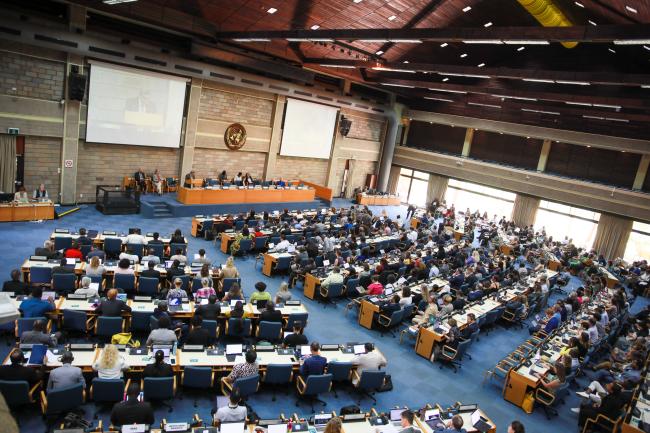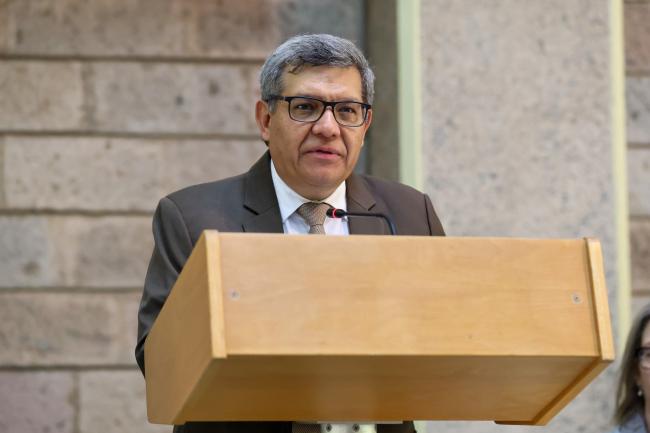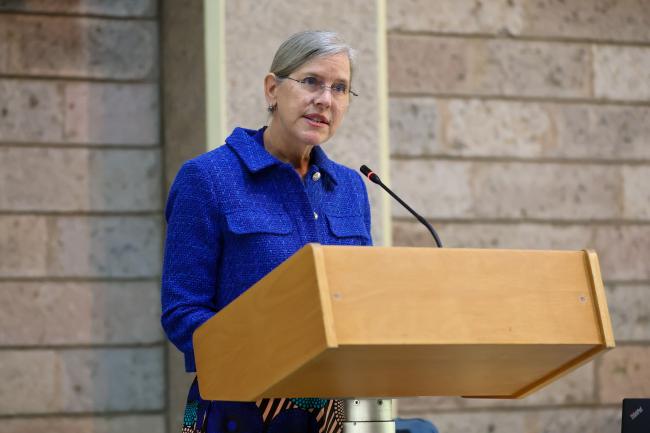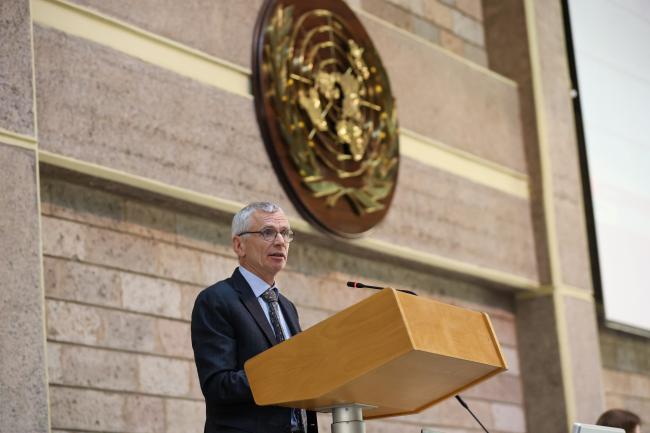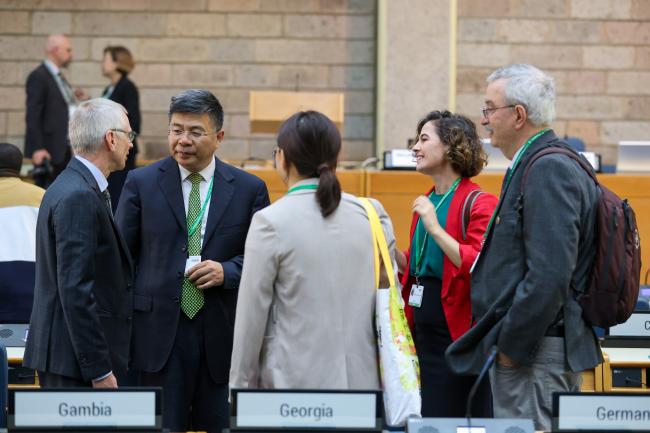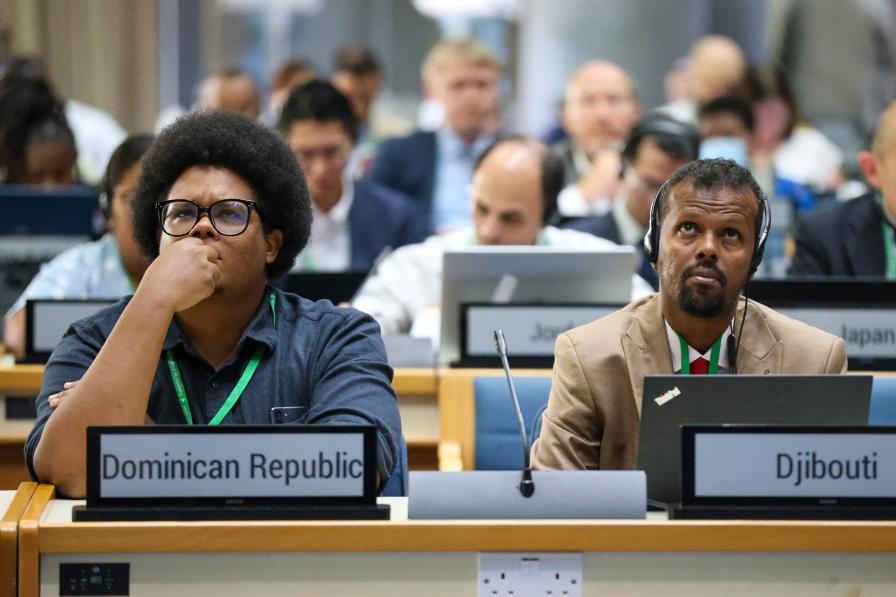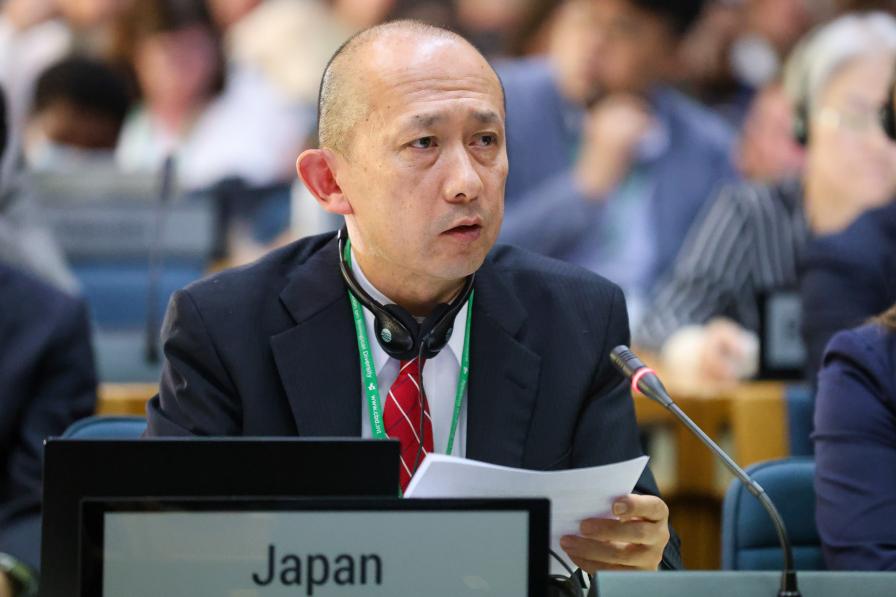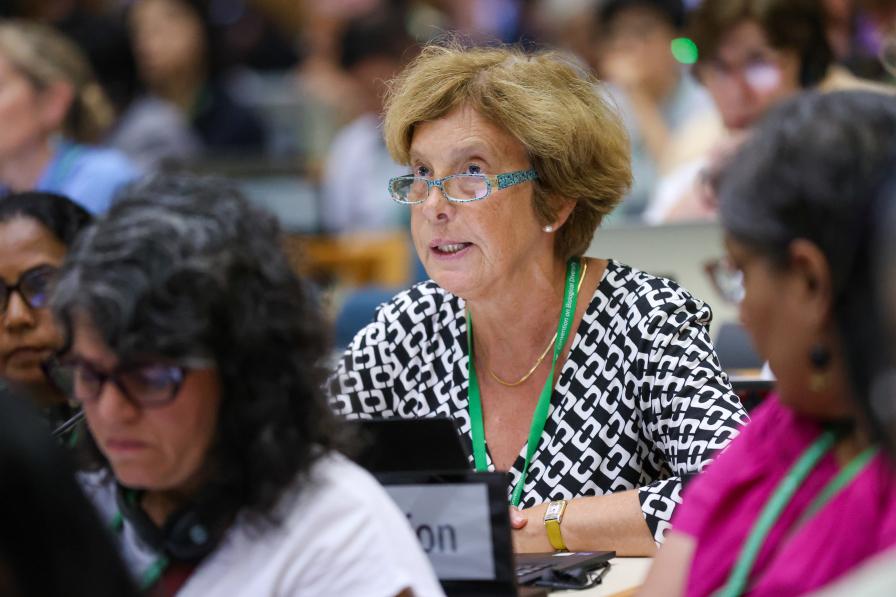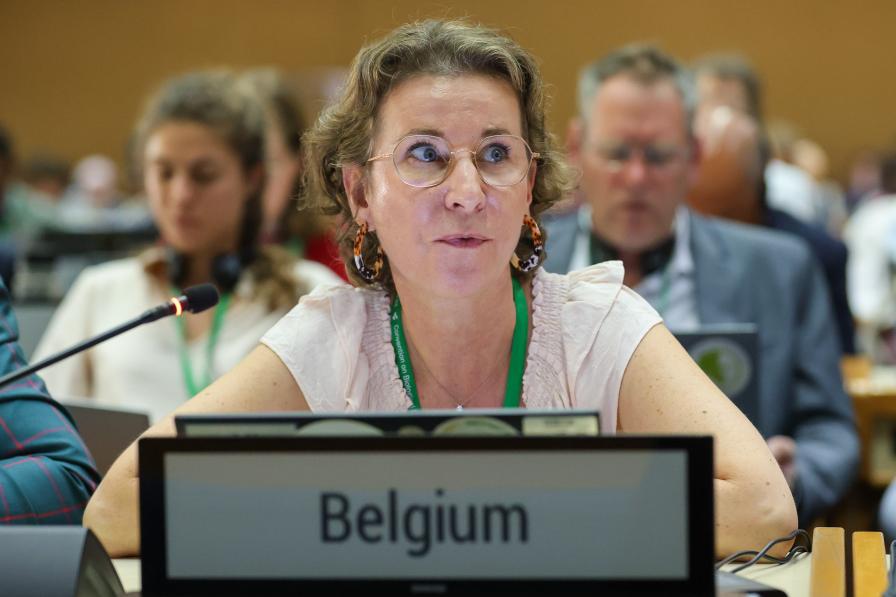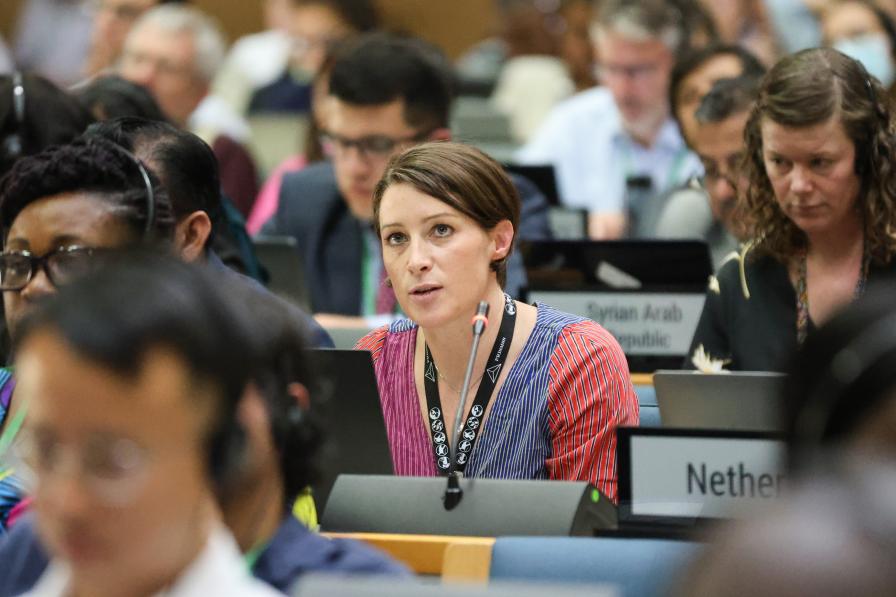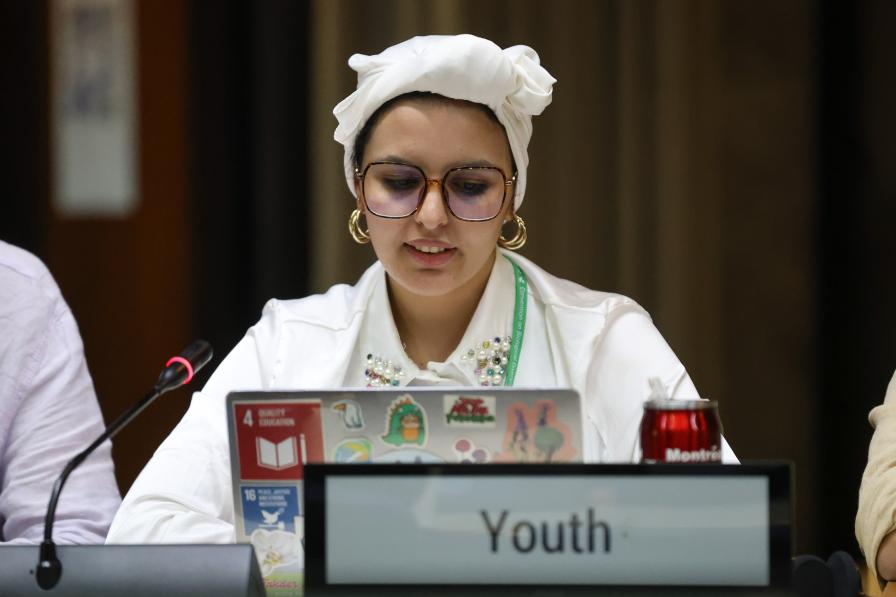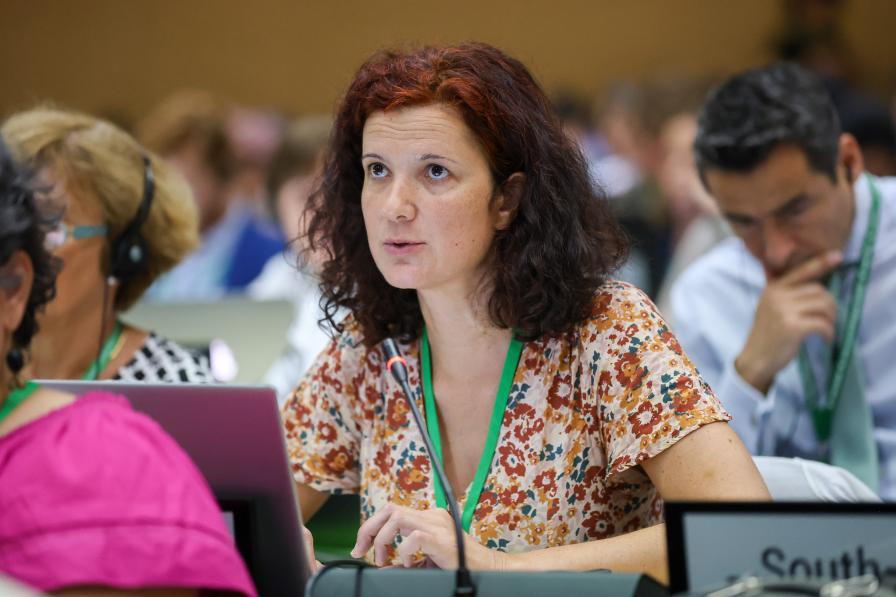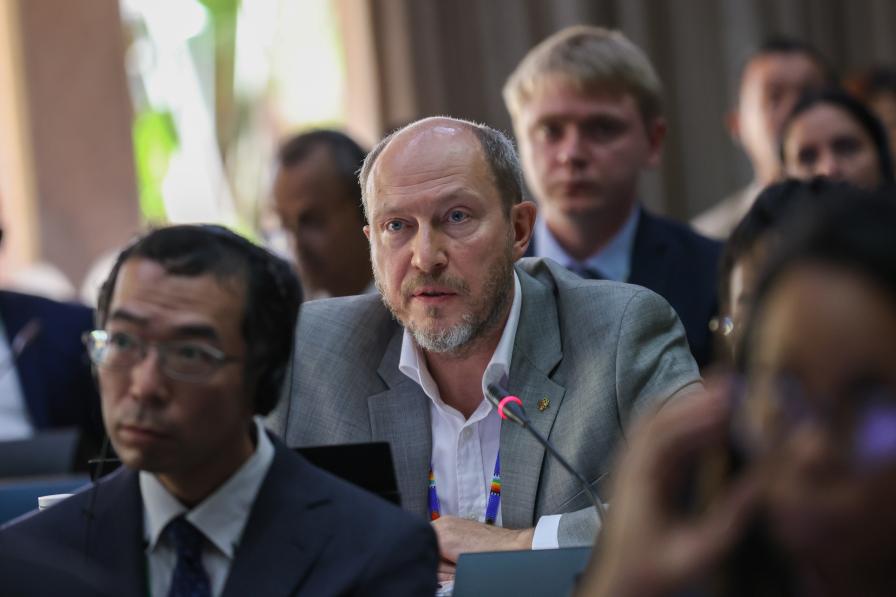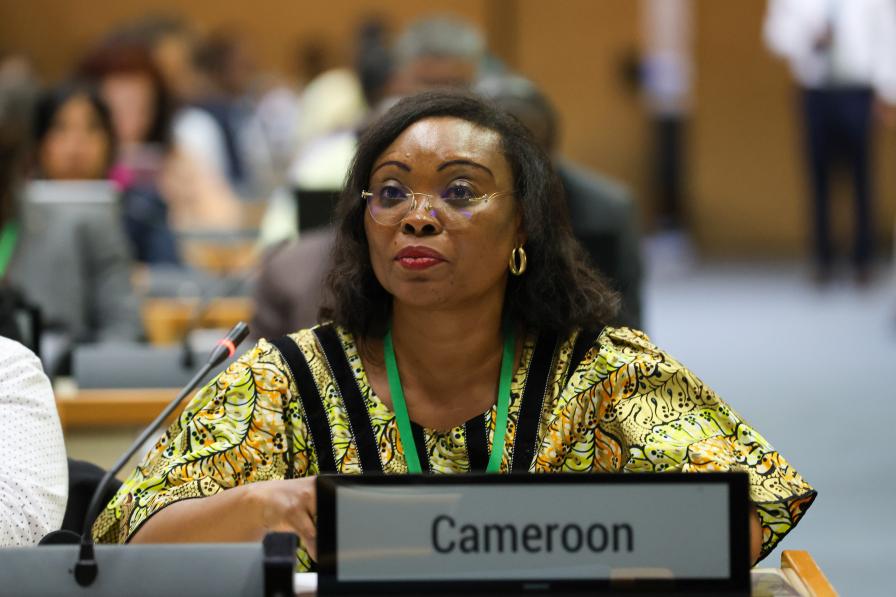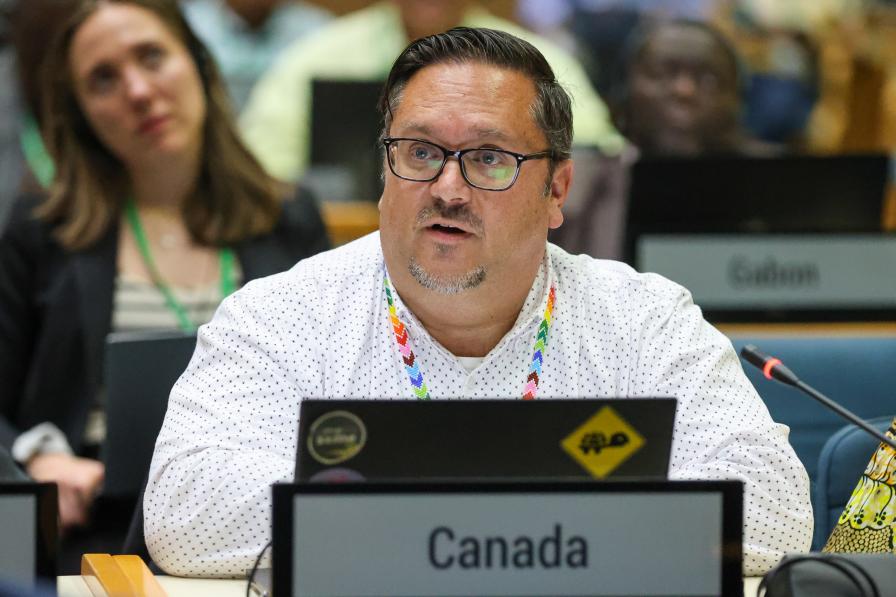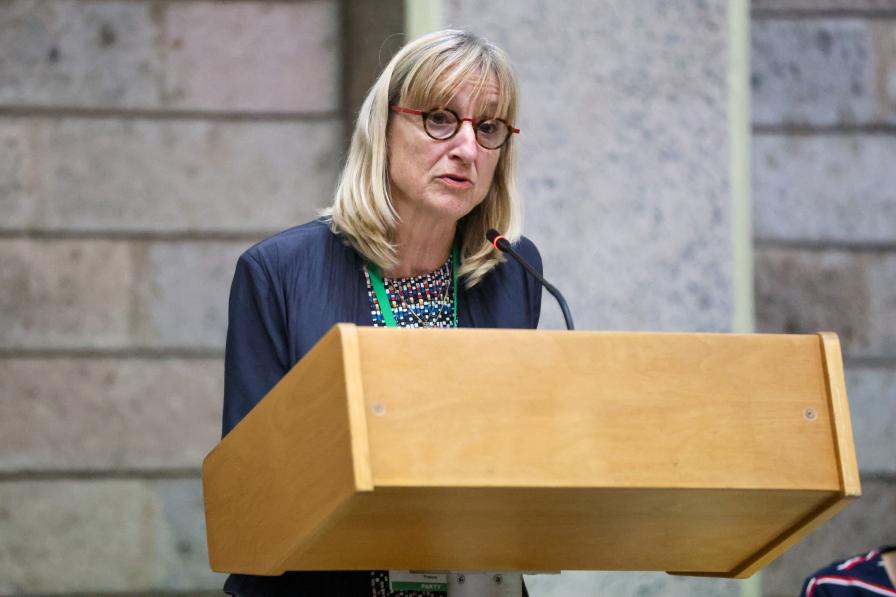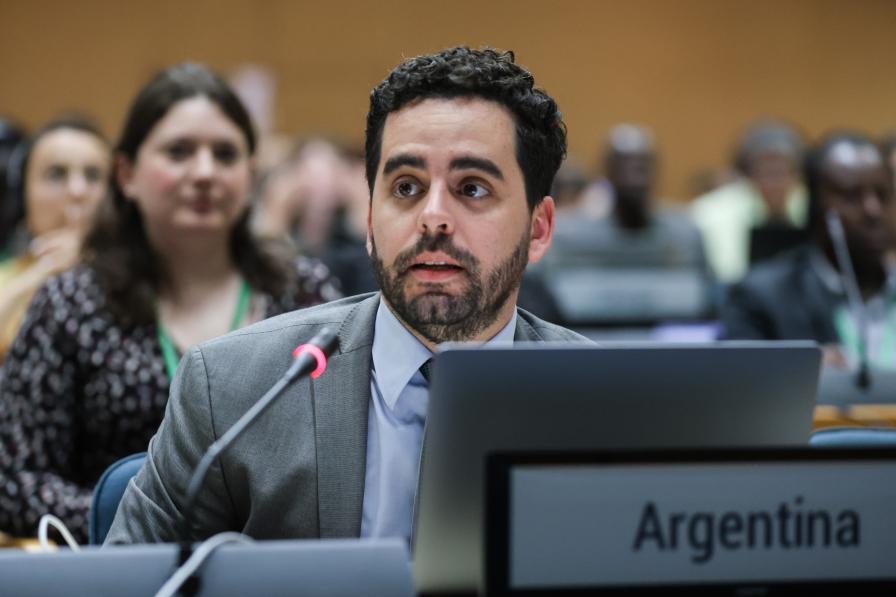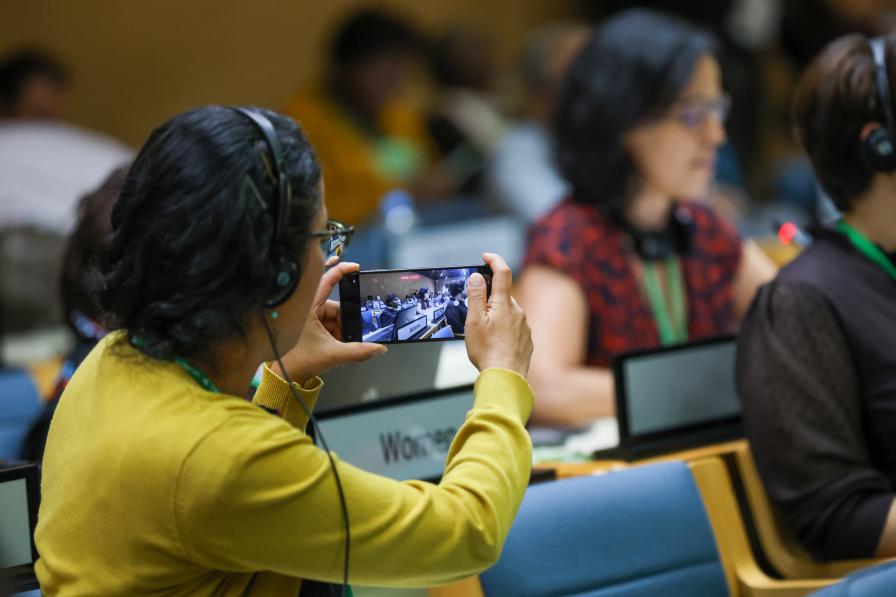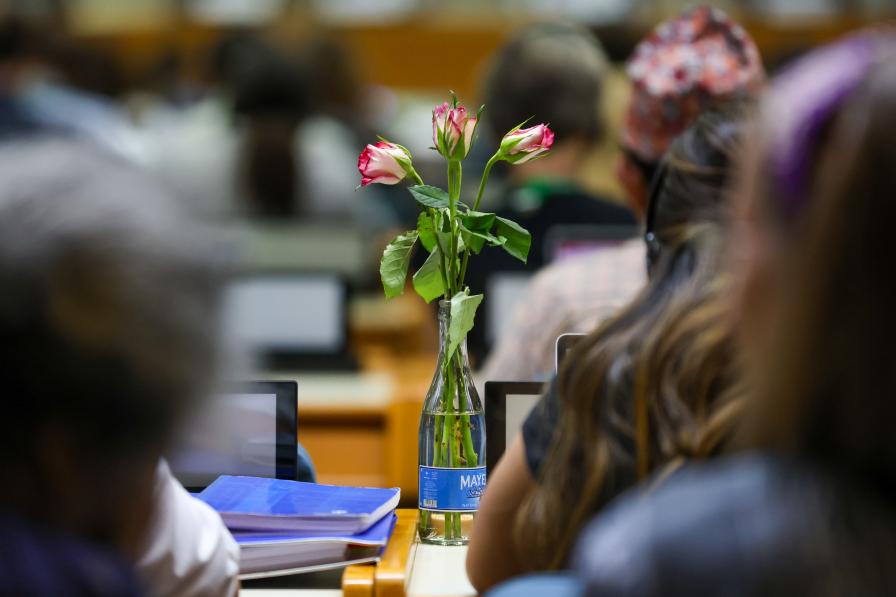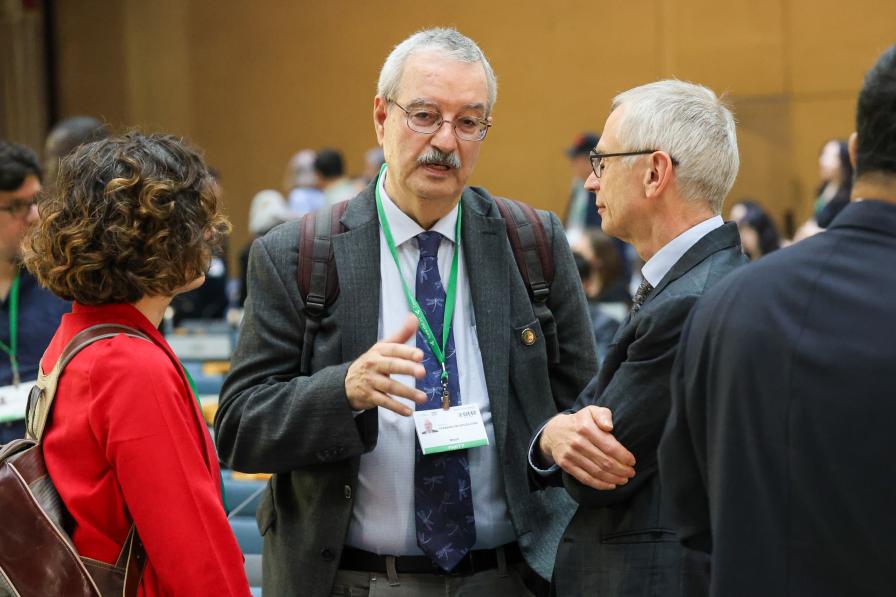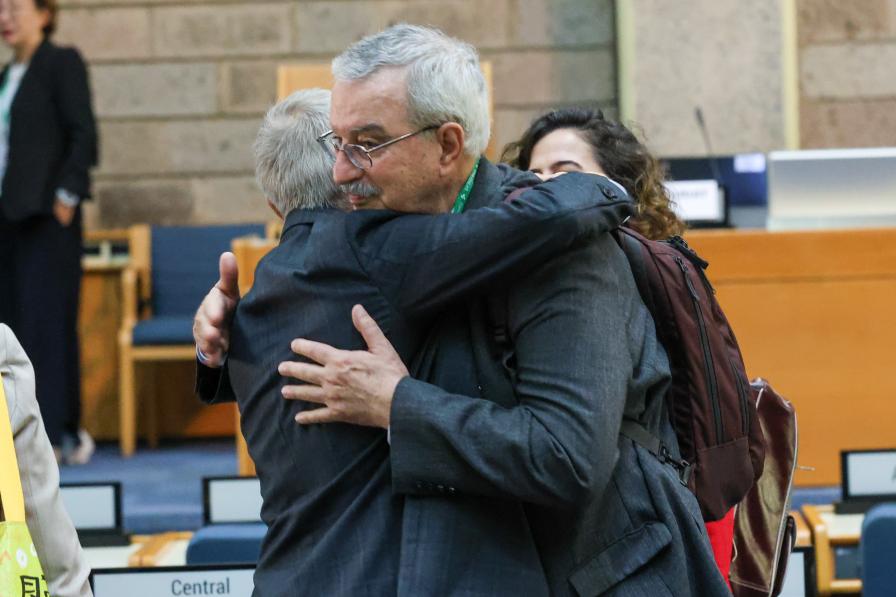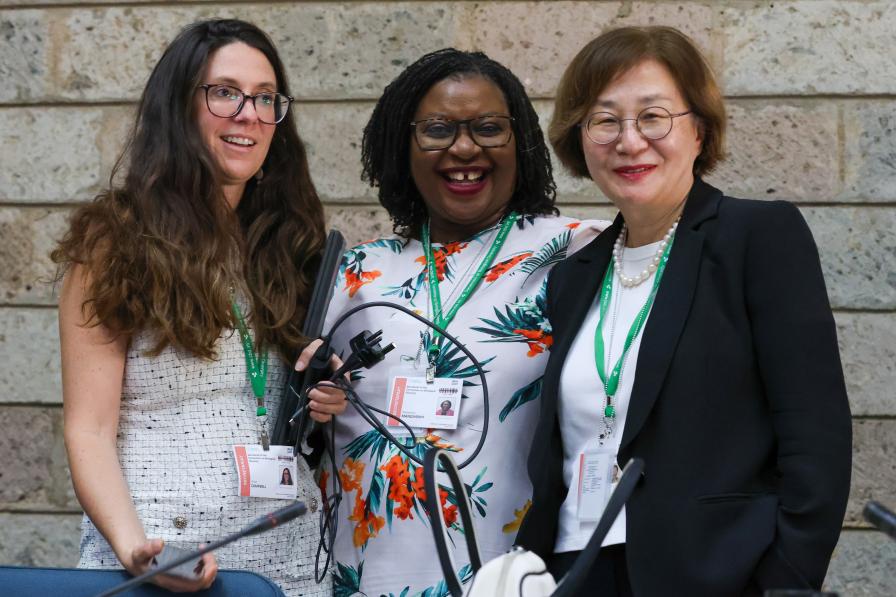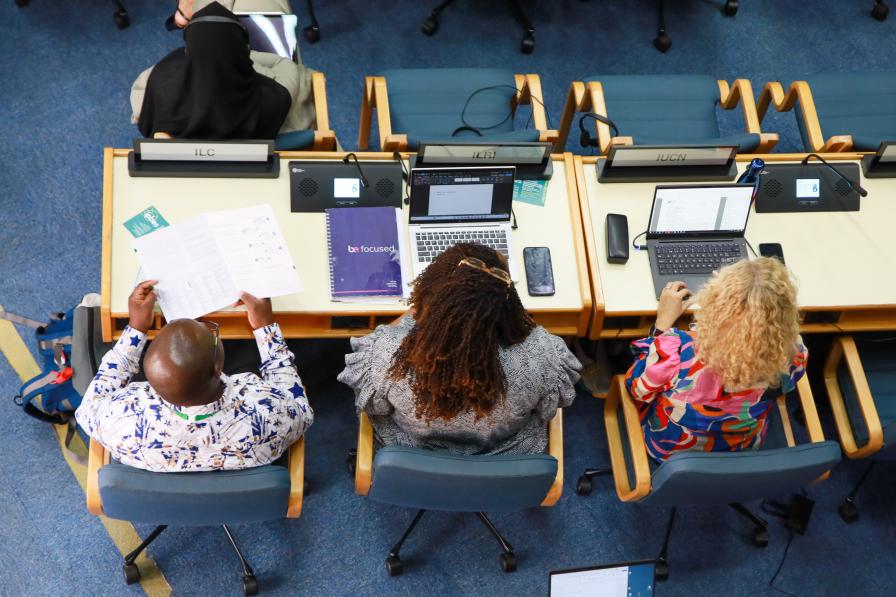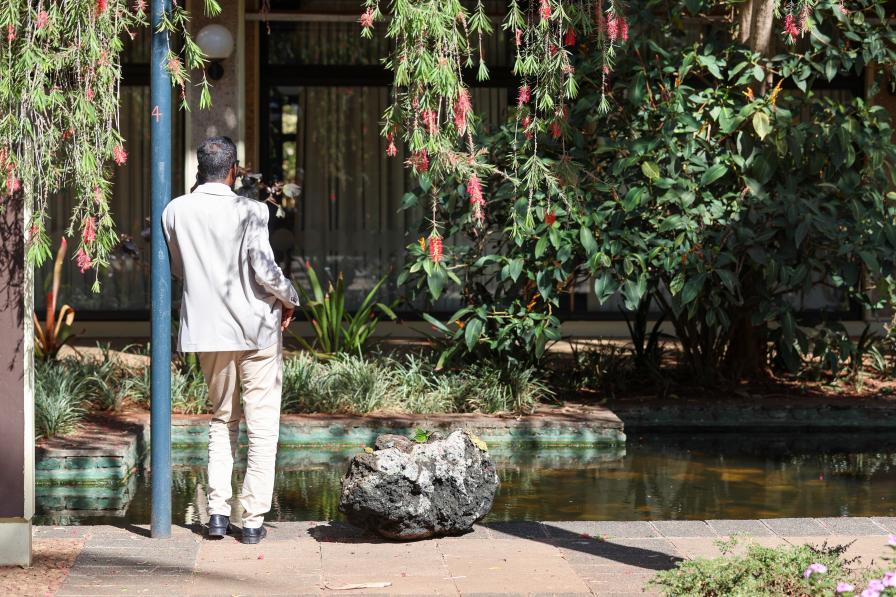The twenty-fifth meeting of the Subsidiary Body on Scientific, Technical and Technological Advice (SBSTTA 25) of the Convention on Biological Diversity (CBD) marks the first time the UN Biodiversity community has come together since the adoption of the Kunming-Montreal Global Biodiversity Framework (GBF). The meeting also kicks off on the 13th anniversary of the Nagoya - Kuala Lumpur Supplementary Protocol on Liability and Redress to the Cartagena Protocol on Biosafety, adopted in Nagoya, Japan.
Throughout the day, delegates engaged in a collaborative approach on the implementation and monitoring of the GBF, including inputs to the first ever global review of collective progress in GBF implementation.
Want to dig deeper? Read the Earth Negotiations Bulletin daily report.
Opening
Hesiquio Benítez Díaz (Mexico), SBSTTA Chair, opened the meeting by stressing the importance of SBSTTA 25 for GBF implementation, to move words into action.
Susan Garner, Ecosystem Division, UN Environment Programme (UNEP), emphasized that to deliver on the GBF, we need a whole-of-government and whole-of-society approach, adequate financing, and positive yet disruptive practices underpinned by knowledge and science.
David Cooper, Acting Executive Secretary, CBD, drew attention to the adoption of the Global Biodiversity Framework Fund by the Global Environment Facility, and the work of the Taskforce on Nature-related Financial Disclosures.
Delegates hit the ground running, focusing on the heart of the agenda – facilitating the implementation of the GBF and monitoring its progress.
Facilitating the Implementation of the GBF and the Monitoring of its Progress
Discussions on this topic hinged on the report from the Ad-hoc Technical Expert Group (AHTEG) on GBF Indicators, which includes an annex of proposed list of binary questions.
Many countries recounted their national circumstances noting that certain binary questions requiring a yes or no response to implementation actions do not apply to them. Some examples included questions on marine areas, which do not always apply for landlocked countries, and questions on Indigenous Peoples and local communities (IPLCs), as some countries have none.
Many called for the simplification or disaggregation of information, with some urging for synergies with biodiversity-related conventions including the Bern process to contribute towards the implementation of the GBF.
Delegates will continue discussions in a contact group on the binary indicators, co-chaired by Jan Plesnik (Czechia), and Adams Toussaint (Saint Lucia).
Mechanisms for Planning, Monitoring, Reporting and Review
In the afternoon, delegates discussed scientific, technical and technological inputs to inform the first ever CBD global review of collective progress in the implementation of the GBF.
They highlighted the need for the global review to contain sections on among others:
- biodiversity trends;
- collective progress from national reports;
- contributions from other biodiversity-related agreements; and
- implementation gaps.
With only six years left to fulfil the promises of the GBF, delegates delved into the scientific and technical discussions with a strong sense of urgency. Given the fact that this was the first meeting since the adoption of the GBF, everyone felt a deep sense of responsibility.
To receive free coverage of global environmental events delivered to your inbox, subscribe to the ENB Update newsletter.
All ENB photos are free to use with attribution. For the 25th Meeting of the CBD Subsidiary Body on Scientific, Technical, and Technological Advice (SBSTTA 25) and Resumed Second Part of the 15th Meeting of the CBD Conference of the Parties, please use: Photo by IISD/ENB | Mike Muzurakis.
